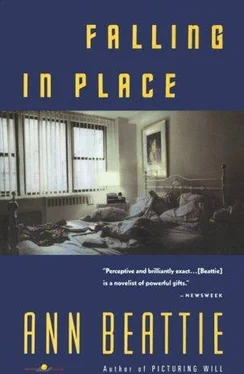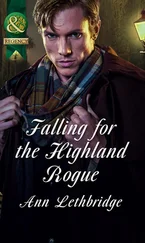Ann Beattie - Falling in Place
Здесь есть возможность читать онлайн «Ann Beattie - Falling in Place» весь текст электронной книги совершенно бесплатно (целиком полную версию без сокращений). В некоторых случаях можно слушать аудио, скачать через торрент в формате fb2 и присутствует краткое содержание. Год выпуска: 1991, Издательство: Vintage, Жанр: Современная проза, на английском языке. Описание произведения, (предисловие) а так же отзывы посетителей доступны на портале библиотеки ЛибКат.
- Название:Falling in Place
- Автор:
- Издательство:Vintage
- Жанр:
- Год:1991
- ISBN:нет данных
- Рейтинг книги:4 / 5. Голосов: 1
-
Избранное:Добавить в избранное
- Отзывы:
-
Ваша оценка:
- 80
- 1
- 2
- 3
- 4
- 5
Falling in Place: краткое содержание, описание и аннотация
Предлагаем к чтению аннотацию, описание, краткое содержание или предисловие (зависит от того, что написал сам автор книги «Falling in Place»). Если вы не нашли необходимую информацию о книге — напишите в комментариях, мы постараемся отыскать её.
Falling in Place — читать онлайн бесплатно полную книгу (весь текст) целиком
Ниже представлен текст книги, разбитый по страницам. Система сохранения места последней прочитанной страницы, позволяет с удобством читать онлайн бесплатно книгу «Falling in Place», без необходимости каждый раз заново искать на чём Вы остановились. Поставьте закладку, и сможете в любой момент перейти на страницу, на которой закончили чтение.
Интервал:
Закладка:
“I know there isn’t any one reason for anything,” he said, “but I wondered if you had any ideas.”
“What does Mary say?”
He thought: She thinks of you as Lost in the Forest, but obviously you are not.
“Actually,” he said, “we were talking this past weekend, and I tried to get her to talk about one of the books you were having them read. Vanity Fair . I must say she didn’t seem eager to talk about it. I don’t think kids are comfortable talking about books when they’re her age. I know I wasn’t. But that isn’t what I started to say.”
She was looking at him. She looked tired. She was quite pretty, and he wondered what she was really thinking. Whatever she had been thinking earlier had been erased. He looked at the swirls and streaks of white on the blackboard behind her.
“What were you going to say?”
“Oh,” he said, looking back at her. “Sorry. I was going to say that she acted as if Vanity Fair was silly. I asked her how she felt about Dobbin and she seemed to think he was ludicrous. But later she said a very perceptive thing. We were talking about something else entirely, and she said, in passing, that Vanity Fair seemed to be about how things just fall into place.”
He realized that he was leaning quite far forward. He eased himself farther back on the desk. Looked at her, trying not to appear anxious. He was anxious. He was not sure about what. About what Mary had said, in part. He was wondering if that was true. Maybe things just fell quickly because of gravity, and when they stopped, you said they were in place.
That thought disturbed him so much that he stood up.
“You’ve read Vanity Fair,” she said.
He nodded yes. He did not tell her that he had just bought it.
“I wonder if you’d like to have lunch,” he said. “Have you already eaten? I mean, you might just want to go on with what you were doing, and not spend an hour listening to some student’s father—” He broke off.
She got up. “I’ll go to lunch with somebody who’s read Thackeray. Sure,” she said. “Just a minute.”
And then he was alone in the room. It seemed strange to be there alone — almost as if something dangerous might happen. He wondered what might happen, and smiled at the image that flashed through his head of himself, backing up toward the dusty blackboard as though a magnet were drawing him, getting his clothes dirty. He would have to wear this same jacket and this same pair of pants into the city.
Everybody he knew had problems with their children. They all had children who needed braces, or were doing poorly in school, or had run away. Last week, Metcalf’s eight-year-old son had fallen and broken his glasses, and Metcalf had brought them into New York to get new lenses made up. That morning he kept calling people into his office to see the glasses. He had put them on the corner of his desk, on a stand with a curved piece of brass that usually held a strange shell. A small pair of glasses, both lenses cracked, tiny cracks like the points of fire shooting away from a sparkler: a small pair of horn-rimmed glasses, useless to see out of, set out for people to look at like an objet d’art . “Eight years old, and blind as a bat without them. On my lunch hour I’m taking them to a place that can grind new lenses and put them in by five o’clock, and then I’m driving out to Sneden’s Landing with them and giving them to Paul, and he’ll put them on and see again. He’s a nice kid, and he’ll probably even thank me. He was upset about breaking them, and he cried. Eight years old, and blind as a bat. I’m the big-shot today. I give him his sight back for forty smackers. Costs that much only because the frames got screwed up, too. But he’s blind. Eight years old, and my kid is blind. When I was eight years old, I was blind, too. My wife has 20–15, my kid and I are blind.” Coming out of Metcalf’s office, Nick had turned to him and said, “I almost did it that time. I really almost walked over to him and smashed him. He tosses off everything as a joke, constantly. If he came back from the dead, you know what he’d do? Deface his own gravestone.” It had seemed irrelevant to tell Nick that years before, when he first came to work for the agency, he had gone out with Metcalf one Friday after work and they had gotten drunk, and Metcalf had gotten maudlin and talked about how he was going to be cremated, no stone, his ashes scattered over Korea, because he had liked Korea. Not the war part, but Korea. He had liked Korea.
“Okay,” Cynthia said, coming back into the room. She had combed her hair and did not look quite as tired. He suggested a restaurant a few miles down the road from the school, and she said she’d follow him in her car. At lunch, he was going to have to think of something to say to her, to find some way to get her to pass Mary. He would certainly never think of anything to say to Mary to persuade her that she should try harder. If he were Nick, he could dazzle Cynthia with all the knots he could tie. He smiled. Nick had sworn to him that that really dazzled women. That they would do anything for a man who could tie fifteen different knots.
All right: That was the truth of it. He found her attractive. She had Nina’s direct gaze, and she obviously deserved better than to be in that school teaching those kids, the way Nina deserved better than Lord and Taylor’s, and when he felt sorry for women a feeling of longing often got mixed up with the pity.
He turned on the radio, kept moving the dial. “And this one, you can be sure, is one of the best,” the announcer’s voice said. “This is a recording of ‘Don’t Worry ’Bout Me’ which was used as the theme song for a movie I’ll bet a lot of you have forgotten called End of the Road . Billie Holiday recorded this one in 1957, with the Ray Ellis Orchestra, and the man you’ll hear on alto sax is Mr. Gene Quill.” The announcer had a surprisingly calm, quiet voice — a late-night announcer’s voice.
Billie Holiday was singing. She was singing, and the lyrics, of course, were not to be understood as meaning what they were saying. When she sang “I’ll get along” it was painful; the restraint in her voice, the way she absolutely did not mean it, but not self-pitying either. Nina could do that: She could say something about her ability to survive that would shock him with her lack of faith in herself, but she wouldn’t give in. She really pretended to be a survivor, to the extent that at times he feared for her life, actually thought she might be dead when the telephone rang in her apartment and she didn’t answer. Nina hated him to talk that way. She said that he had been a Boy Scout too long, that she did not care to be helped across the street. But once, early on, surprised at the intensity of her feeling for him, she had gotten drunk at dinner. He had held her arm crossing the street, and she had not objected. She wanted to marry him. Nina.
He pulled into the parking lot outside the restaurant. Cynthia passed his car and parked farther down, on the opposite side. His parking place was closer: He should have left it for her, but he didn’t think of it. Or maybe Nina was right about his being too much of a Boy Scout. If they had taught him to tie knots in the Boy Scouts, he didn’t remember it.
The restaurant was air conditioned, and the instant he felt cool he wanted a drink. He asked her if she wanted a drink, hoping that she did. When the waiter came, she ordered a glass of white wine, and he ordered a gin and tonic.
“I was thinking, driving here, that I don’t envy you,” he said.
She smiled. She seemed to know what he meant, and he was glad, because after he said it, he realized that it might have seemed a condescending thing to have said.
Читать дальшеИнтервал:
Закладка:
Похожие книги на «Falling in Place»
Представляем Вашему вниманию похожие книги на «Falling in Place» списком для выбора. Мы отобрали схожую по названию и смыслу литературу в надежде предоставить читателям больше вариантов отыскать новые, интересные, ещё непрочитанные произведения.
Обсуждение, отзывы о книге «Falling in Place» и просто собственные мнения читателей. Оставьте ваши комментарии, напишите, что Вы думаете о произведении, его смысле или главных героях. Укажите что конкретно понравилось, а что нет, и почему Вы так считаете.












